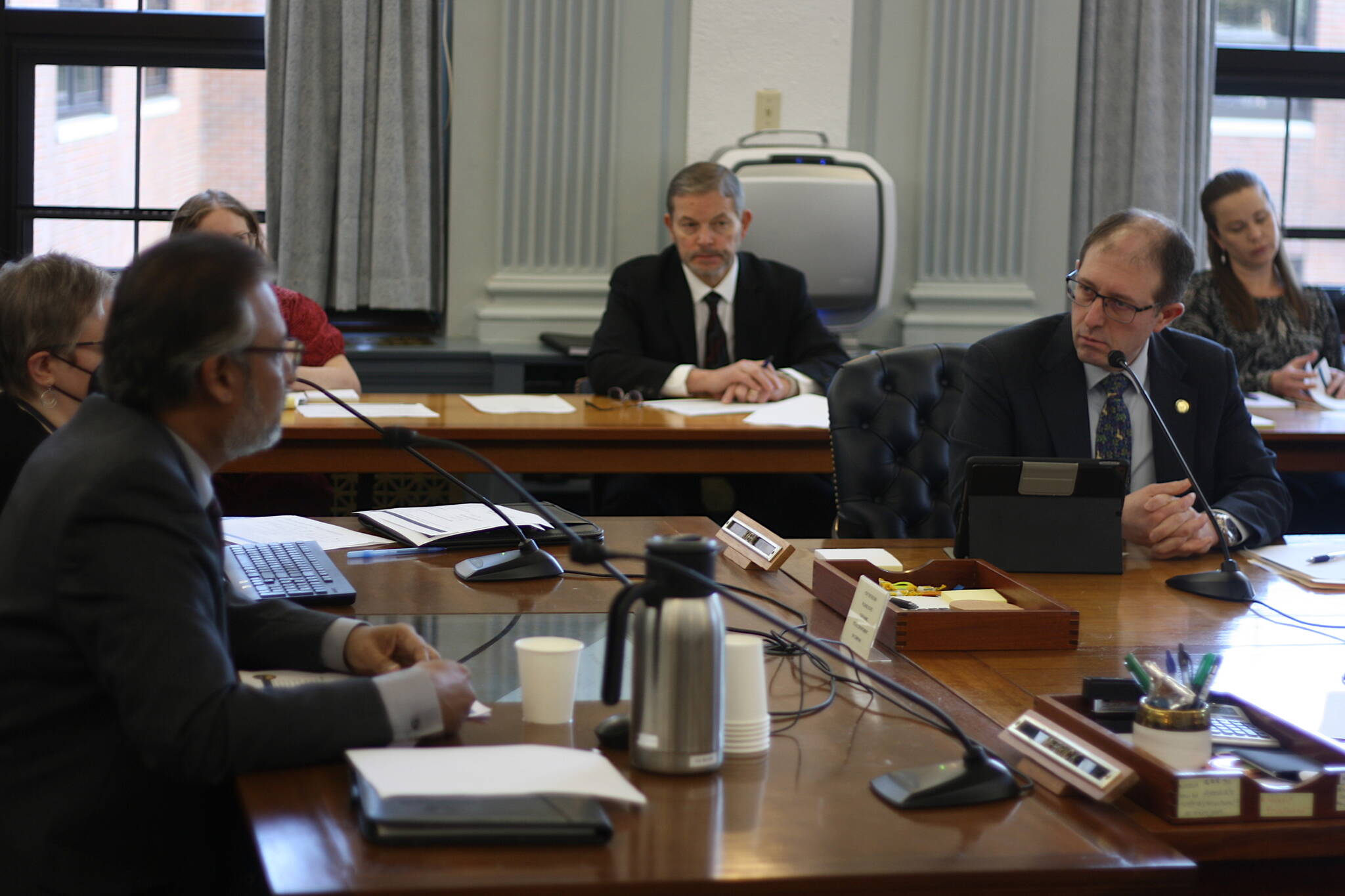The Alaska Legislature’s Senate Finance Committee met on Feb. 23 to begin examining issues around state retirement systems and workforce recruiting and retention. The public hearing was prompted by concerns that state and municipal governments are experiencing high employee turnover rates. Furthermore, attracting qualified applicants has become increasingly difficult and many positions remain unfilled.
Some legislators and employee unions are promoting the idea of reintroducing an expensive legacy state pension plan in hopes this will magically fix the problem. But promising public employees a guaranteed lifetime income upon retirement under this plan would introduce major financial risk to state government, municipalities, and local taxpayers.
Employee retention and hiring is a nationwide problem, not just one peculiar to Alaska. Furthermore, it is not limited to public employees but exists in the private sector as well.
The COVID-19 pandemic triggered enormous turmoil in the U.S. labor market, in both the public and private sectors, with repercussions that will be felt well into the future. Widespread job losses early in the pandemic created tight labor markets that still persist today.
It’s fair to ask the question, though, should Alaska return to an enormously costly retirement system that will have long-term financial implications to fix a problem that may not exist five years from now?
In 2006, the State of Alaska moved from one type of retirement system (defined benefits pension — DBP) for state and municipal employees to a 401(k)-style retirement plan (defined contribution retirement — DCR). The reason for the change was the large accumulation of unfunded liabilities caused by structural under-funding of retirement plans and the stark realization that Alaska’s defined benefit plan, as designed, was unsustainable over the long term.
In the first meeting of what will be a lengthy process, Senate Finance Committee members listened to a presentation by the Division of Retirement and Benefits that compared Alaska’s current state retiree plans with its legacy plans that were discontinued 17 years ago.
Today, proposals to re-institute a similar DBP system for some or all government employees would be extremely risky, considering the private sector has moved steadily away from this model and more state governments are eyeing reforms that limit risk.
Alaska’s experience with the previous plan should be warning enough. No new employees have been enrolled in Alaska’s discontinued defined-benefits-plan for the last 17 years. Yet the plan has required and will still require massive infusions of government cash for decades to make it financially solvent enough to pay out benefits to existing employees and beneficiaries for another 70-plus years. (Alaska’s accumulated unfunded pension liability estimates range anywhere from $7.8 billion to $31 billion depending on interest rate assumptions used).
Consequently, state and municipal level officials are looking at other options. At a recent Senate Labor & Commerce Committee hearing on workforce challenges, Jeff Rogers, City and Borough of Juneau finance director, summarized some of the actions Juneau has implemented or is considering for its employees:
— $5,000 annual stipend for childcare
— Hiring bonuses up to $40,000 for critical positions
— Enhanced employer match for employee retirement contributions
— Expansion of retention bonus program
— Work from anywhere 3 weeks/year – work from home 2 days/week
— Bring infants under 6-months-old to work
— Allow pets in employee offices
— Student loan or tuition assistance
These incentives or policies might have been unthinkable five years ago. Some may view them as unworkable or too expensive, but they have one significant advantage. They address hiring and retention issues without increasing current unfunded pension liabilities and re-exposing state and municipal governments (and local taxpayers) to the obligation to pay ever-increasing retiree benefits in perpetuity.
In the modern world of work, the idea of a ‘job for life’ is becoming increasingly outdated and irrelevant. Millennials and Generation Z have different ideas about what benefits they value in the workplace. There are many reasons why an applicant might accept a job offer or why a current employee would leave their job. But we should not assume that what worked 20 years ago will work today.
In the coming months, Alaskans will hear about ideas under deliberation. In considering changes, the Legislature would be wise to include those that share the financial risk equitably between employer and employee.
• After retiring as the senior vice president in charge of business banking for KeyBank in Alaska, Win Gruening became a regular Opinion Page columnist for the Juneau Empire. He was born and raised in Juneau and graduated from the U.S. Air Force Academy in 1970. He is involved in various local and statewide organizations. Columns, My Turns and Letters to the Editor represent the view of the author, not the view of the Juneau Empire. Have something to say? Here’s how to submit a My Turn or letter.

